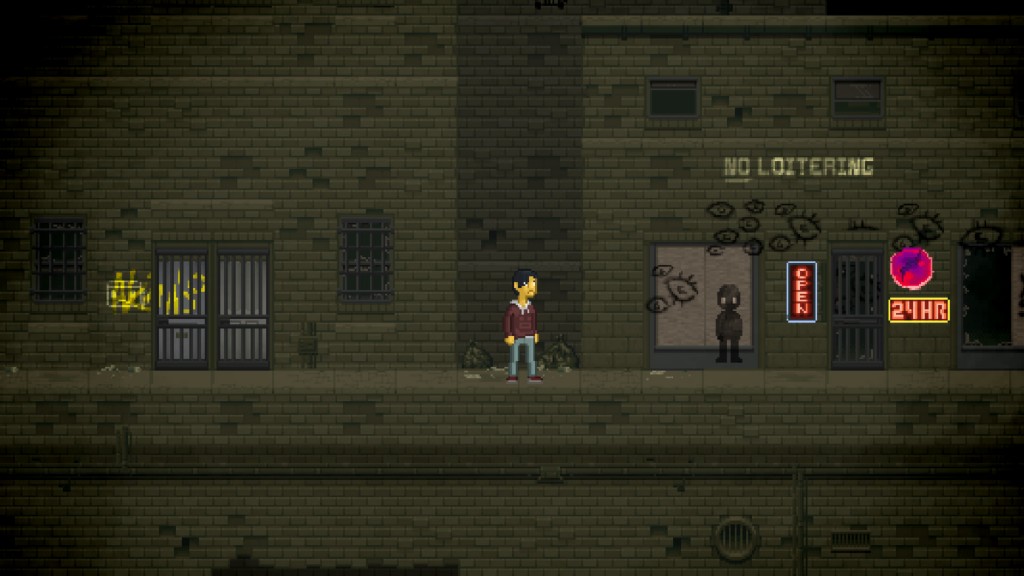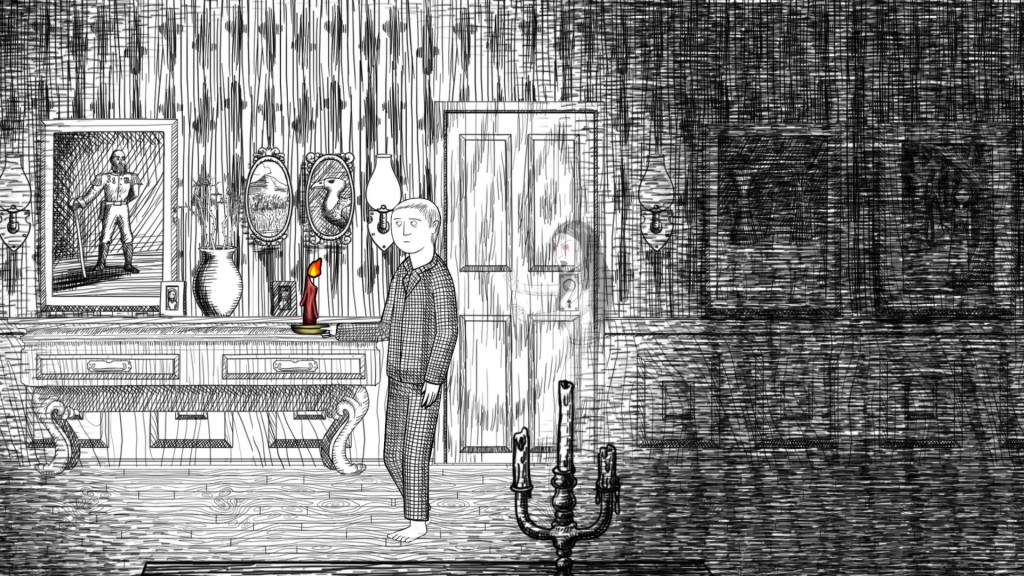In any case, this increase in independent titles dealing with troubling aspects of humanity are important. Even if you have never struggled with something like depression before there’s worth in seeing things from someone else’s vantage point. One recent game tackling such topics is Disorder. This puzzle platformer tells the story of how one person’s emotional life is torn to shreds after the death of their younger brother. Both the visual aesthetic and gameplay mechanics attempt to relate to the emotional confusion, sadness, and loneliness at every point.
Trying to tie a gameplay mechanic to something like depression sounds like an impossible task to me – and presumably to many developers as well. But Disorder manages it in a mostly effective manner. For example, the rift between worlds seems to mirror a split between the reality and mental strain of the protagonist’s continued existence. Was that the intent? Who can say, but it felt effective nonetheless. Other games have tackled mental illness topics with puzzle mechanics too. Perhaps there’s something about it all which lends itself well with puzzles. After all, everyone wants to uncover why they feel the way they do.
Some games go for a different approach. For example, The Cat Lady and Neverending Nightmares push for a point and click adventure-esque playstyle. Even within this broad stylistic stroke both games pursue their own specific storytelling techniques. The Cat Lady provides an entire adventure through a troubled woman’s psyche which includes a variety of characters, puzzles, and sequences that lead to a satisfying conclusion. Outside of the very dark concepts, storyline, and visual style it still feels safe. It still abides by adventure game logic enough to create distance between it and the player.
On the other hand Neverending Nightmares doesn’t attempt to tell such a “defined” storyline. Yes, there is one, but it was made as a sort of digital excursion into the developer’s own mind. Bearing that into consideration makes the experience of simply walking through dark, frightening hallway and room becomes all the more real. This isn’t just something someone made to be a creepy game but is someone’s nightmarish struggle. Neverending Nightmares is purposefully uncomfortable and stands out for that reason.
In comparison, Disorder floats in a bit of middle ground between completely safe and feeling too close for comfort. Some aspects feel pulled from lived experiences which may touch some players. On the other hand, puzzle platforming is so heavy on focused attention to timing and mechanics that you can’t get too close. Instead, you are kept at arm’s length with a peripheral view of the character’s suffering. It’s not a bad thing, just one way to approach telling such a story. More developers should feel safe creating whatever stories they need to get out and share them. Here’s hoping that we see more crowdfunded (and not – such as in Disorder’s case) titles approaching heavy topics with maturity and creativity.
Disorder is out “Not Crowdfunded, But…” game of the month for January. You can read more Disorder coverage here, or check our other “Not Crowdfunded, But…” coverage.





